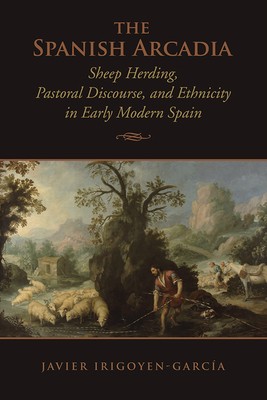
- We will send in 10–14 business days.
- Author: Javier Irigoyen-García
- Publisher: University of Toronto Press
- ISBN-10: 1442647272
- ISBN-13: 9781442647275
- Format: 15.5 x 23.1 x 3.3 cm, hardcover
- Language: English
- SAVE -10% with code: EXTRA
Reviews
Description
The Spanish Arcadia analyzes the figure of the shepherd in the sixteenth- and seventeenth-century Spanish imaginary, exploring its centrality to the discourses on racial, cultural, and religious identity. Drawing on a wide range of documents, including theological polemics on blood purity, political treatises, manuals on animal husbandry, historiography, paintings, epic poems, and Spanish ballads, Javier Irigoyen-GarcÃa argues that the figure of the shepherd takes on extraordinary importance in the reshaping of early modern Spanish identity.
The Spanish Arcadia contextualizes pastoral romances within a broader framework and assesses how they inform other cultural manifestations. In doing so, Irigoyen-GarcÃa provides incisive new ideas about the social and ethnocentric uses of the genre, as well as its interrelation with ideas of race, animal husbandry, and nation building in early modern Spain.
EXTRA 10 % discount with code: EXTRA
The promotion ends in 10d.15:06:07
The discount code is valid when purchasing from 10 €. Discounts do not stack.
- Author: Javier Irigoyen-García
- Publisher: University of Toronto Press
- ISBN-10: 1442647272
- ISBN-13: 9781442647275
- Format: 15.5 x 23.1 x 3.3 cm, hardcover
- Language: English English
The Spanish Arcadia analyzes the figure of the shepherd in the sixteenth- and seventeenth-century Spanish imaginary, exploring its centrality to the discourses on racial, cultural, and religious identity. Drawing on a wide range of documents, including theological polemics on blood purity, political treatises, manuals on animal husbandry, historiography, paintings, epic poems, and Spanish ballads, Javier Irigoyen-GarcÃa argues that the figure of the shepherd takes on extraordinary importance in the reshaping of early modern Spanish identity.
The Spanish Arcadia contextualizes pastoral romances within a broader framework and assesses how they inform other cultural manifestations. In doing so, Irigoyen-GarcÃa provides incisive new ideas about the social and ethnocentric uses of the genre, as well as its interrelation with ideas of race, animal husbandry, and nation building in early modern Spain.


Reviews